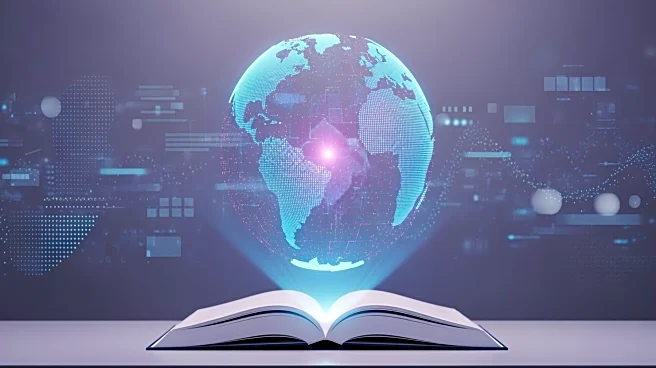What's Happening?
Artificial intelligence (AI) is increasingly being recognized as a transformative force in education, with the potential to revolutionize learning environments. At Huawei's Smart Education Forum during GITEX Global 2025, experts discussed AI's role in creating
personalized and dynamic learning experiences. Alexander Michael from Frost & Sullivan highlighted AI's ability to provide intelligent tutoring systems that adapt lessons in real-time, offering personalized learning companions to students. Despite its potential, most educational institutions are still in the early stages of AI adoption, with only a small percentage achieving full integration. The forum emphasized the need for robust infrastructure to support AI-driven education, citing examples like Ivy Tech Community College in the U.S., where AI systems have significantly improved student performance.
Why It's Important?
The integration of AI in education is crucial for enhancing teaching quality and driving inclusivity. AI tools can reduce the workload on educators, allowing them to focus more on student engagement. The technology also holds promise for closing educational gaps, particularly for marginalized groups, as noted by UNESCO's Ekaterina Pushkareva. By fostering collaboration between technology leaders and educational institutions, AI can empower educators and equip students with necessary skills for the digital economy. The shift towards AI-driven education systems could lead to more equitable and adaptive learning environments, supporting global education goals and sustainable development.
What's Next?
Future steps involve strengthening infrastructure to support AI in classrooms, including high-speed connectivity and advanced digital tools. Collaboration between governments, private companies, and international organizations is essential to build a sustainable ecosystem for intelligent education. Huawei's ongoing partnership with UNESCO aims to provide policy recommendations and scalable solutions for digital transformation in schools and universities. As AI continues to evolve, stakeholders must ensure sound governance and digital literacy to maximize its benefits while mitigating potential risks.
Beyond the Headlines
The ethical implications of AI in education are significant, as the technology must be used responsibly to avoid misuse, such as AI writing essays for students. Ensuring digital literacy among both teachers and students is crucial to harness AI's potential effectively. The collaboration between public and private sectors is vital to co-build a robust ecosystem for intelligent education, emphasizing the importance of shared expertise and resources.
















